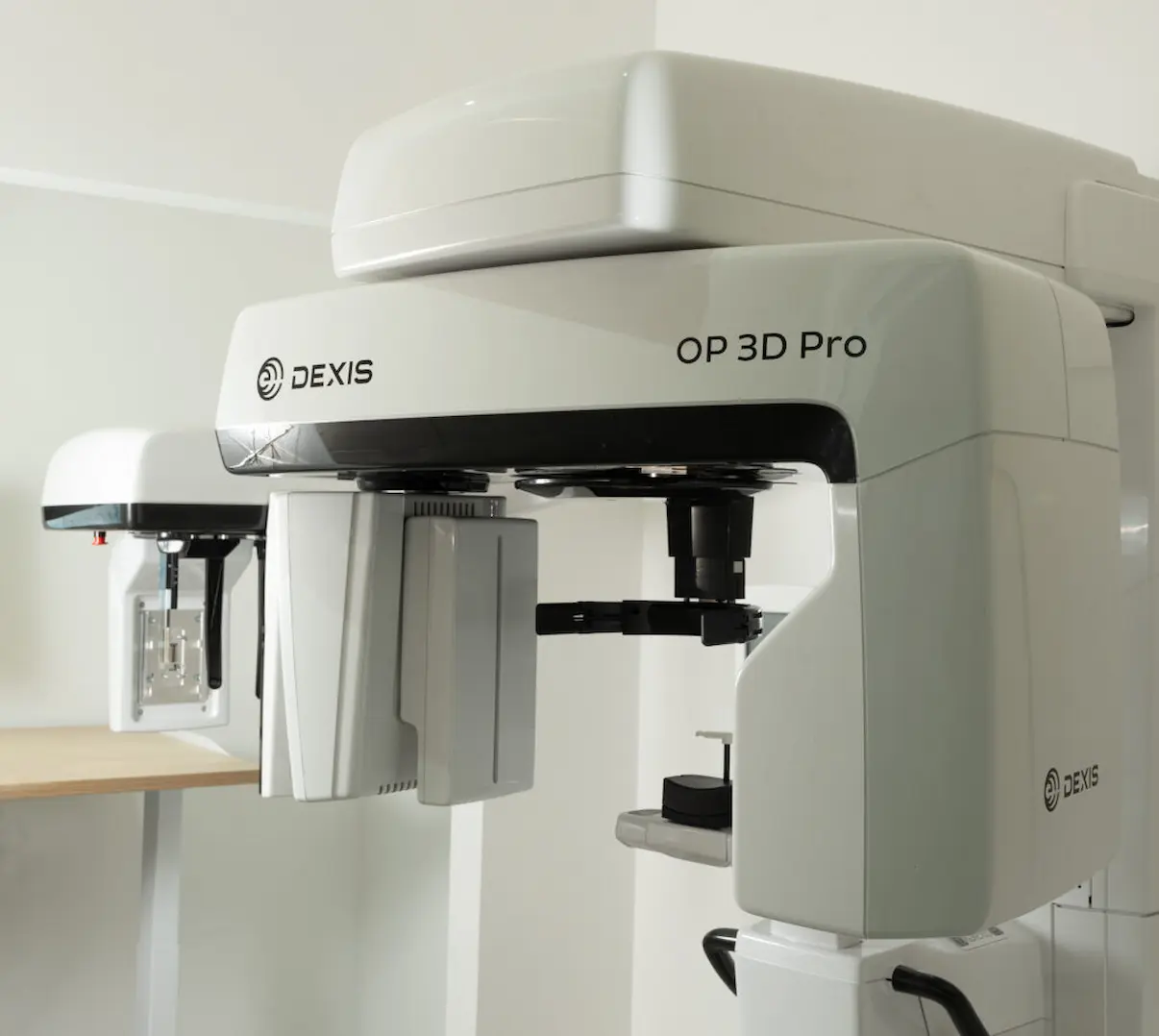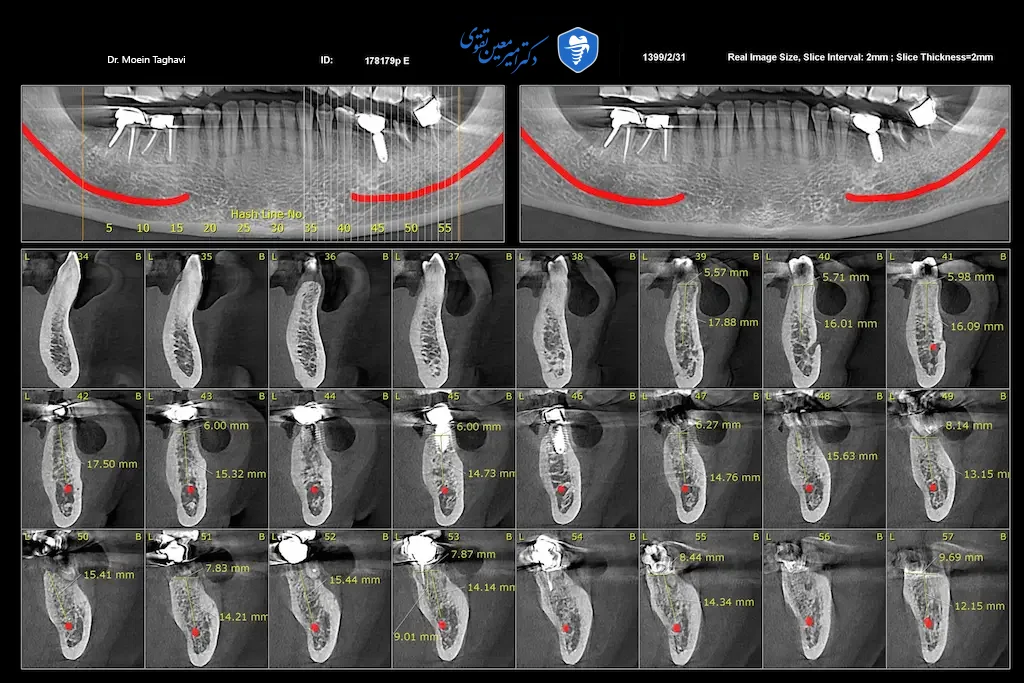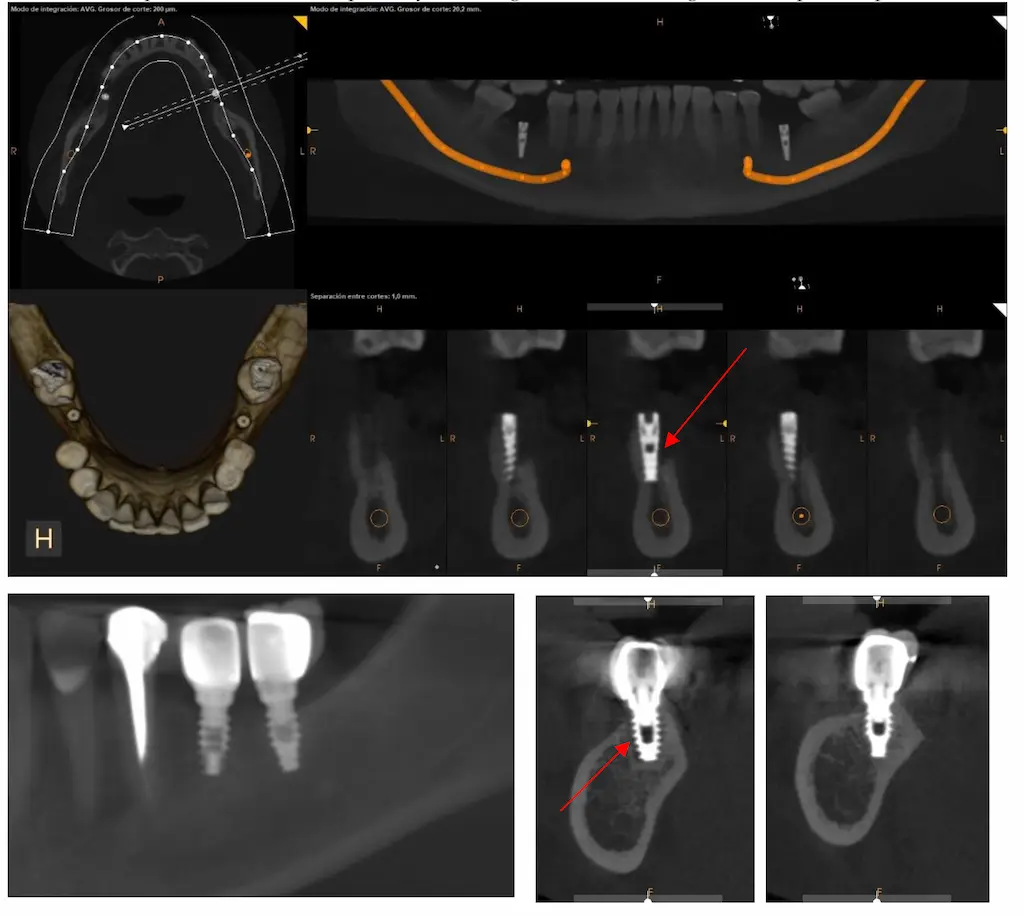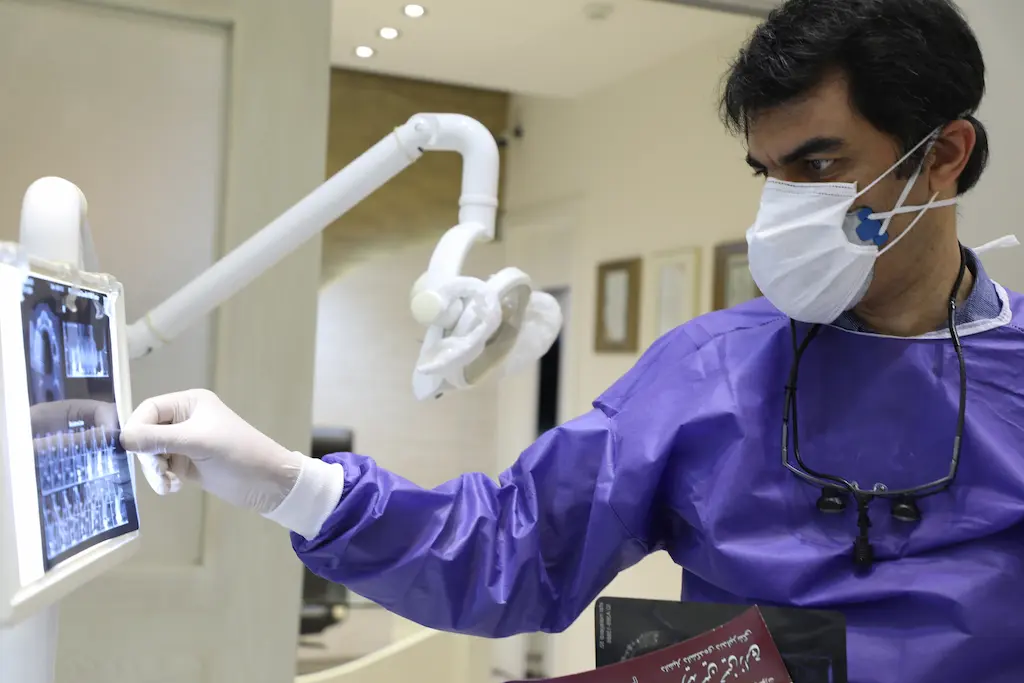Submit Request ...
-
Forums
Dental CBCT Scan: What Is It & Why You Need One

When being evaluated for dental implants, your periodontist will likely request a CBCT scan. If you’ve never had one of these scans before, you may have some questions:
-
• What is a CBCT scan?
-
-
• What’s the difference between a CBCT scan and a full mouth or panoramic x-ray?
-
-
• What can I expect?
-
Dr. Moein Taghavi is here to answer all your questions about CBCT scans and why we use them here in Dr. Moein Taghavi Clinic.
What is a CBCT Scan?
CBCT stands for cone-beam computed tomography. CBCT systems used by dental professionals rotate around you, capturing data using a cone-shaped x-ray.
In less than a minute, about 150-200 images are captured from a variety of angles. The data captured are used to reconstruct a 3D image of your:
-
• Teeth
-
-
• Mouth, jaw, and neck
-
-
• Ears, nose, and throat (ENT)

What’s the difference between CBCT and standard x-rays?
You’ve probably heard of or received full mouth x-rays (FMX) or panoramic x-rays (PANO) from your dentist in the past.
• FMX — Typically taken every 3-5 years by your dentist. The FMX captures images of each tooth and the surrounding structures and is used to diagnose gum disease, cavities, dental abscesses, and lesions.
• PANO — A single picture image most often used by oral surgeons and orthodontists. This type of x-ray does not provide explicit detail.
Compared to these standard x-rays, a dental CBCT scan is a much more detailed and effective method of capturing information about your dental health. CBCT technology also uses less radiation and requires fewer scans to see the different views and angles of your mouth. Plus, unlike traditional dental x-rays, the cone beam CT scan can show both bones and soft tissues.
What are the benefits of CBCT scans?
A healthy smile starts with a foundation of healthy bones and gums. Our periodontists are dedicated to helping you build and maintain that foundation. CBCT scans are an important part of providing high-quality periodontal care and helping you achieve total dental health.
There are many benefits to getting a CBCT scan:
✓ Better image quality and accuracy
✓ Provides comprehensive information about your oral health
✓ Comfortable and quick experience
✓ A lower dose of radiation
Why are CBCT scans necessary?
Since a CBCT scan shows all your bones, nerves, and soft tissues in high detail, this allows us to diagnose your health and plan our treatment approach before we even begin a procedure.
Notably, this technology is a key step in planning and performing successful dental implant surgery. CBCT scans help your periodontist:
✓ Provide accurate measurements, including the shape and dimensions of your jaw
✓ Identify gum issues
✓ Detect lesions that may indicate serious disease
✓ Locate the origin of any pain
✓ Evaluate your sinuses, nasal cavity, and nerve canal

CBCT scans for dental implant treatment
CBCT scans are an important part of modern implant treatment. All in all, this technology makes it easy for our team to take a complete virtual model of your soft tissues, bones, and teeth and provide better outcomes.
CBCT scans help our periodontists:
✓ Accurately design the proper bite, reducing the risk of misaligned implants
✓ Measure and localize the available jawbone, location of the maxillary sinus, and sensory nerves
✓ Select the right size and length of implant for optimal stability, safety, and integration

What to expect when you get a CBCT scan
Getting a cone beam CT scan is fast, comfortable, and requires no special preparation. Here’s what you can expect:
✓ We’ll ask you to remove anything that may interfere with the imaging, including metal objects, such as jewelry, eyeglasses, and hearing aids.
✓ Women should always inform their dentist or oral surgeon if there is any possibility that they are pregnant.
✓ You will be asked to remain very still during the scan.
✓ The imaging machine will rotate entirely around your head.
The scan is very quick and in most cases, will take only about 30 seconds!
More questions about CBCT scans?
We’re here to answer all your questions about CBCT scans, dental implants, and taking care of your gums, teeth, and mouth.
Articles are reviewed by Dr. Moein Taghavi, a periodontal surgeon and periodontist. This information is for educational purposes only. This content is not intended to be a substitute for professional medical advice, diagnosis, or treatment. Always seek the advice of a dentist, physician, or other qualified healthcare provider.
Please let us know what you think!